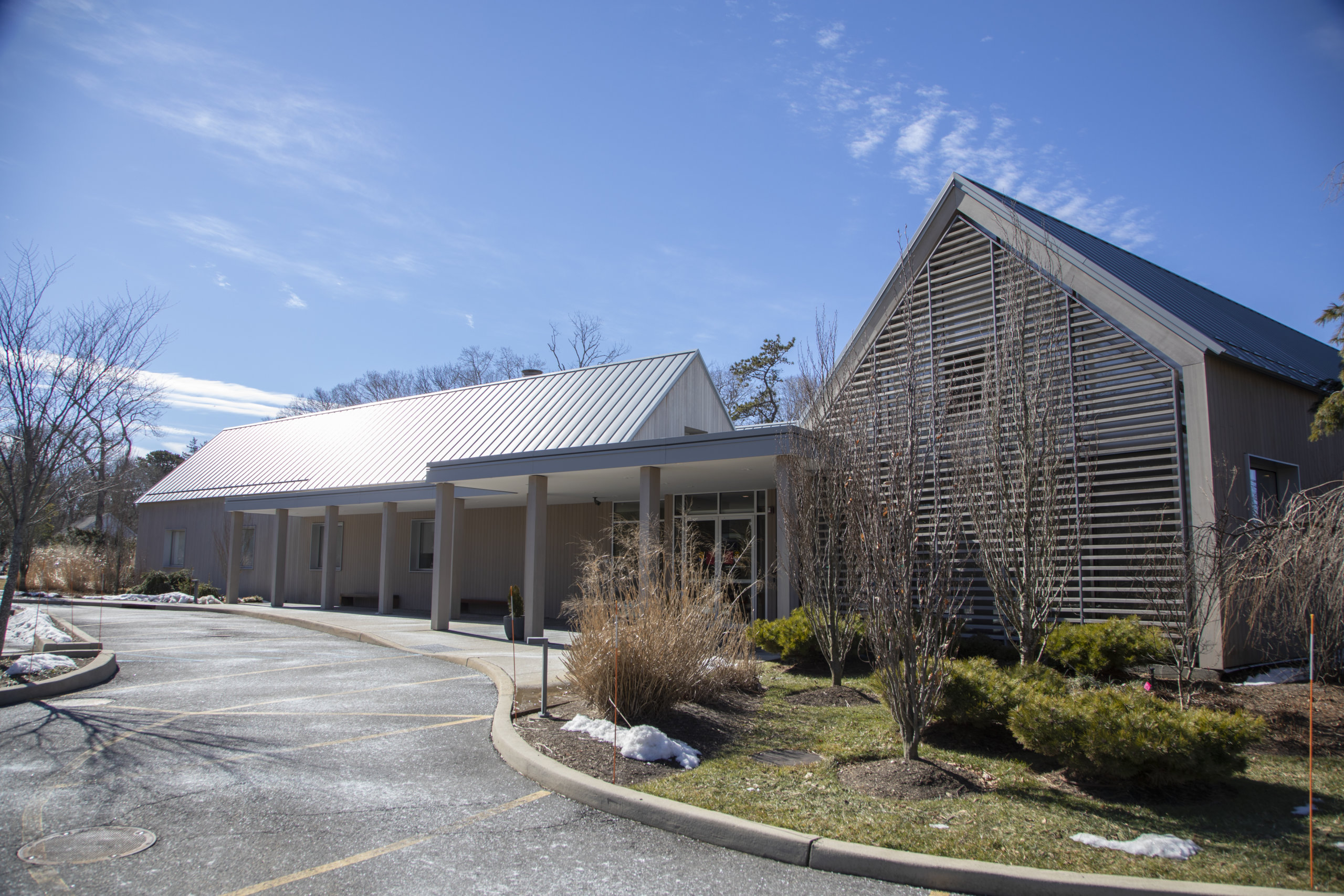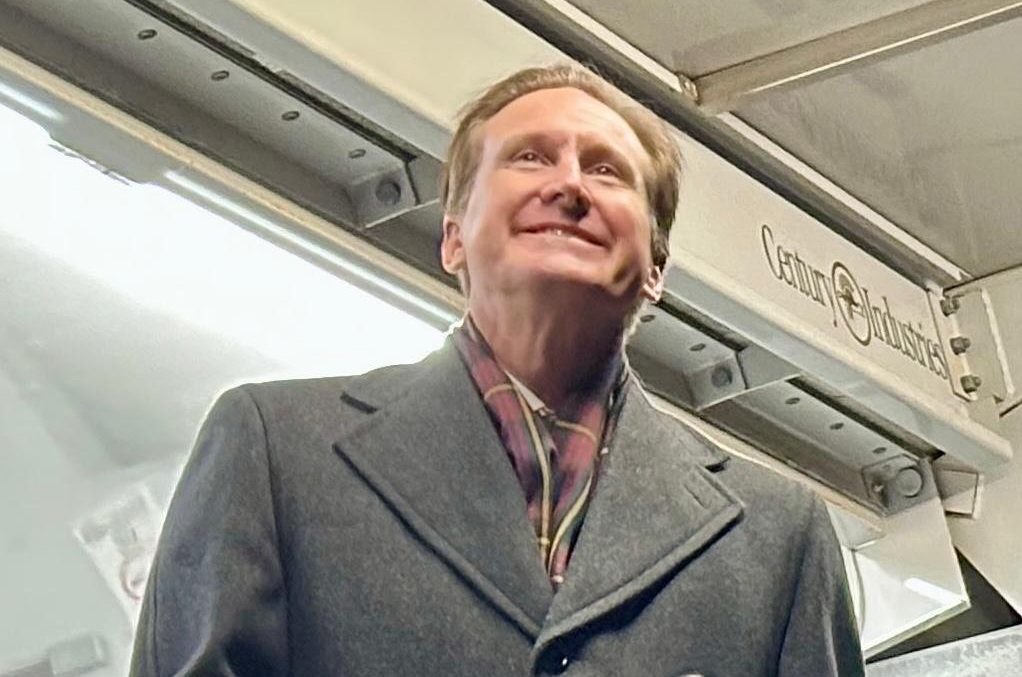End-of-Life Care: A Conversation

Very few people want to talk about—let alone deal—with death. Dr. Rina Meyer, MD, a physician on the pediatric palliative care team at Stony Brook Medicine, and Nicole LaMariana, LCSW, of East End Hospice, have worked together to make end-of-life care special and comforting to patients for years. LaMariana, whose father died when she was 18, was inspired to help others cope with death, as was Dr. Meyer, whose work in pediatric oncology made her want to make the transition to end-of-life care for patients easier. The two remarkable women sat down for a frank, honest and insightful talk about just what end-of-life care means.
Dr. Meyer: One thing I was thinking would be interesting is that when people hear palliative care, usually the first thing they actually think about is hospice or like the very end of life. So I thought it might be interesting if we talked about what palliative care actually is and how it’s different than hospice.
LaMariana: Yeah, I think that’s really important. The best way I usually start to think of it is, it’s very appropriate to have the palliative care diagnosis at day one of diagnosis of serious illness and it’s not to say that that means that we don’t have hope that you can be cured or that this isn’t going to go well, but it’s really just saying, “We acknowledge that this is going to be a really hard time in a lot of different ways and you might experience pain and symptoms physically or emotionally, spiritually, financially, so here’s this extra layer of support, regardless of how good or bad it goes.” So when we tend to start to bring on palliative care, I think because there’s such a reservation for physicians or healthcare professionals to bring it up and I think there’s the thought of, “Well, if I bring this up, I don’t want the family or the patient to feel like I don’t have faith that they’re gonna do well or that I think they’re going to die or that I don’t have hope in them.” So I think we bring in palliative care to the discussion when typically, palliative care could have been following and working collaboratively with the treatment team really in just being a consistent face for the families ‘cause so often the family goes into the hospital and they get admitted for half a dozen times and each time there’s a different physician on service and different residents and you’re there in a different room and everything’s very unsettling. Most cases of palliative care team in a hospital setting works as a consulting team so that’s one face and one person that knows your story every time you come in and can work together with the team.
Dr. Meyer: I sometimes say to families, “we’re kind of the big picture doctors so I don’t get to manage your ventilator or the specifics of your chemotherapy or whether or not you’re gonna get a transfusion today but I get to kind of sit with you and help you look at the big picture and what’s important and are we managing your symptoms well enough.

Dr. Meyer and LaMariana discuss how they respond when people call their work “depressing.”
Dr. Meyer: You and I always joke about how people say to us “Oh my God! I can’t believe you can do this, isn’t it so depressing?”
LaMariana: Yes. Oh my God, yes. It’s so funny that you say that because I have a cookie-cutter response that I typically give everyone, it’s some version of—and because it’s uncomfortable, you don’t want to receive that and just say like, “Oh, thank you.” It’s difficult work but it’s rewarding if people find challenges and then they’re working hard and making a difference in something rewarding. So it happens to be something that people don’t like to talk about but for me, I’m usually like… I think the same thing about accountants. I just imagine sitting at a computer… I don’t even know what an accountant does, but this is my brain, where someone is sitting on a computer and just working with numbers all day. I’m like “That sounds like heroic work to me because I can never do it. That sounds really hard and challenging.” And typically, I think the hardest part of… At least for me in my day-to-day work is trying to face all the barriers and challenges that come along with talking about what we’re doing. Ironically, like trying to answer that question. [chuckle] What do you usually say?
Dr. Meyer: So usually I mean, for the oncology piece, I talk about that kids are really resilient in the most part, they do well but for the palliative care piece, I say something similar to what you say, which is like… It’s really rewarding and in the situation where you feel like, look as physicians, we’re taught our job is to cure illness and when you can’t, it kind of flies in the face of everything that you’ve been told about what your role is.

Dr. Meyer and LaMariana discuss a memorable patient experience.
LaMariana: We had this one man when I worked at Stony Brook. He was 36 years old and he had metastatic colorectal cancer, and he became best friends with the surgeon, and I remember the surgeon really struggling to have the conversation like, there’s nothing more I can offer you, but that’s where we go wrong. You’re changing what there is to offer, and you need to understand what the patient’s expectations are, you just need to have the conversation. So I think in that moment, that’s when he consults in palliative care. That patient, all he wanted to do, but he was just scared to say it, was bring his daughter to Disney. So we ended up getting him to Disney. And he just was like a different person when he came back and he just had… He was the one after that to bring up the conversation about how he wasn’t doing well. Before that, he was so resistant to talking about it because he didn’t want to address it. He wasn’t, he just absolutely wasn’t okay with it, and it’s not to say he was okay with that after he came back, but all he wanted… He was focused on for so long was, “I’m not gonna get to do this with my daughter,” and then he did and then he just opened up to say, “Alright, well, what’s the plan? Are you going to cure this? I don’t think you are. What are we doing?” It was just… I still have a picture of him and his daughter at Disney on my desk.
Dr. Meyer: I remember you talking about that case, and I remember thinking how incredible it was. And I think I find this all the time that the patients and families are brave, and sometimes they’re brave even when the healthcare team is not being as brave. So sometimes the families say to you like, “Look, Doc, give it to me straight, you gonna tell me what’s going on here?” Or, “Don’t sugarcoat it for me, I wanna talk about this.” Or… And I think to be able to meet them in that space is even though it’s heart-breaking sometimes, it’s such a gift.









